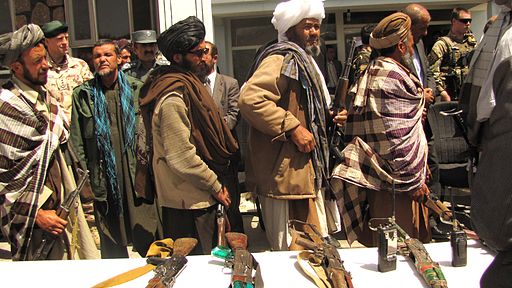Negotiating with the Pakistani Taliban and its Implications
Kunthavi Kalachelvam, Imran Ahmed
26 January 2022Summary
Recent negotiations between the Pakistan government and the Pakistani Taliban have raised several pressing concerns over the state’s counterterrorism capabilities, its long-term strategy against extremism and the opaque nature of its decision making on security matters which appears often to bypass democratic politics and institutions. There are also more foundational and philosophical questions which require consideration, including whether such negotiations undermine the sovereignty of the state. Over the past 15 years, Pakistan has signed three peace deals with the Pakistani Taliban, all of them lasting only a few months. As neither negotiations nor military force has delivered a lasting peace, a comprehensive, long-term strategy in addressing the threat of extremist groups, including the Tehreek-e-Taliban (TTP), is urgently required. This brief looks at the recent truce deal between Pakistan and the TTP and its failure and implications.
Pakistan has seen increased violent attacks on polio and vaccination stations. At the centre of these attacks are militant Islamist groups targeting polio teams, healthcare workers and the security assigned to protect them, claiming “vaccinations campaigns are a conspiracy to sterilise children.” However, the latest fatal attack which took place on 12 December 2021, followed by the Tehreek-e-Taliban Pakistan (TTP) claiming responsibility for this attack, points to a more significant and enduring crisis facing the state.
The latest attack occurred after the truce between the Pakistan government and TTP, brokered by the Afghan Taliban and leaders of the Haqqani network, broke down. This truce deal was an agreed one-month ceasefire. Although most of the terms of the ceasefire remained undisclosed to the public, a crucial component of the agreement was the release of mostly low-levelled TTP fighters. The truce was framed as a success, as previous negotiations failed to reach agreement, but it also garnered a great deal of criticism. The TTP, responsible for numerous attacks against the state, orchestrated the 2014 Peshawar school massacre, which was one of the most devastating terrorist attacks Pakistan had witnessed. This attack saw the loss of 149 people, of which 132 were schoolchildren. The negotiations between the government and the TTP then brought a flare of public outrage and disapproval and signalled a continuing loss of the state’s leverage over the militant groups in Pakistan. The ceasefire was also never discussed in parliament and consequently drew the ire of the government’s political opposition. Bilawal Bhutto Zardari, the leader of the Pakistan People’s Party, for instance, denounced the prime minister for not informing parliament about the talks with the TTP.
These sentiments were further echoed by a three-judge Supreme Court bench headed by chief justice Gulzar Ahmed when it summoned Prime Minister Imran Khan for questioning over the TTP talks. The political situation raised considerable speculation over the government and the establishment’s motives for pursuing the talks – as well as its capabilities in fighting extremism. Analysts have suggested that the United States (US) withdrawal from Afghanistan has weakened the Pakistani state, since the loss of US funds available for combatting terrorism in the region places a significant strain on Pakistani forces. Moreover, the rise of the Afghan Taliban has emboldened extremist groups, giving them time, refuge and resources to strengthen further. This development complicates – if not jeopardises – Pakistan’s existing counterterrorism operations. It also means that existing strategies require considerable, if not wholescale, revision – and this understandably requires time. It is not surprising, then, that Pakistan’s national security adviser, Moeed Yusuf, who defended the negotiations argued that “all states should talk, and if there are ways to bring your own citizens back into the fold of normal legal structures and bounds and constitution, we should.”
Over the past 15 years, Pakistan has signed three peace deals with the Pakistani Taliban, all of them lasting only a few months. The failure of these talks, together with the increasing campaigns of anti-state violence, suggests that a comprehensive, long-term strategy in addressing the threat of extremist groups, including the TTP, is urgently required. Military victories over the Pakistani Taliban may be celebrated but they are short-lived, and a reliance on military methods obfuscates the fact that extremism and radicalism are complex phenomena which require layered, dynamic and nuanced social, economic and political strategies and solutions. Brute force is insufficient to tackle or suppress the problem. Pakistan needs a more robust security strategy moving forward, including a long-term vision that will deliver a more permanent peace.
. . . . .
Ms Kunthavi Kalachelvam is a Research Analyst at the Institute of South Asian Studies (ISAS), an autonomous research institute at the National University of Singapore (NUS). She can be contacted at kk.isas@nus.edu.sg. Dr Imran Ahmed is a Research Fellow at the same institute. He can be contacted at iahmed@nus.edu.sg. The authors bear full responsibility for the facts cited and opinions expressed in this paper.
-
 More From :
More From :
-
 Tags :
Tags :
-
 Download PDF
Download PDF



